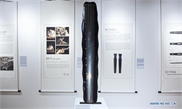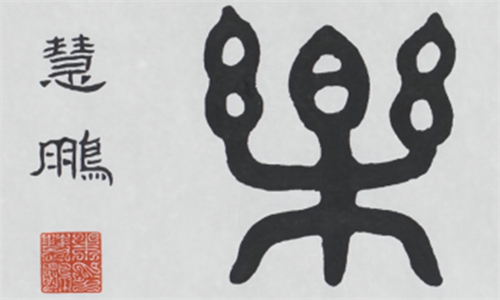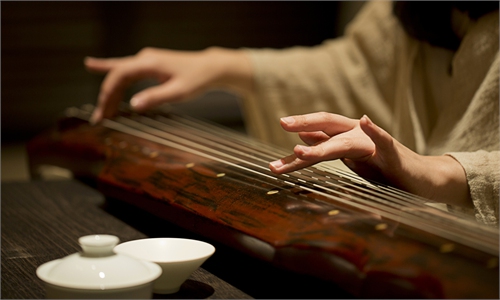ARTS / CULTURE & LEISURE
Chinese musician shares joyful memory of her guqin performance for French President Macron
An ancient tune
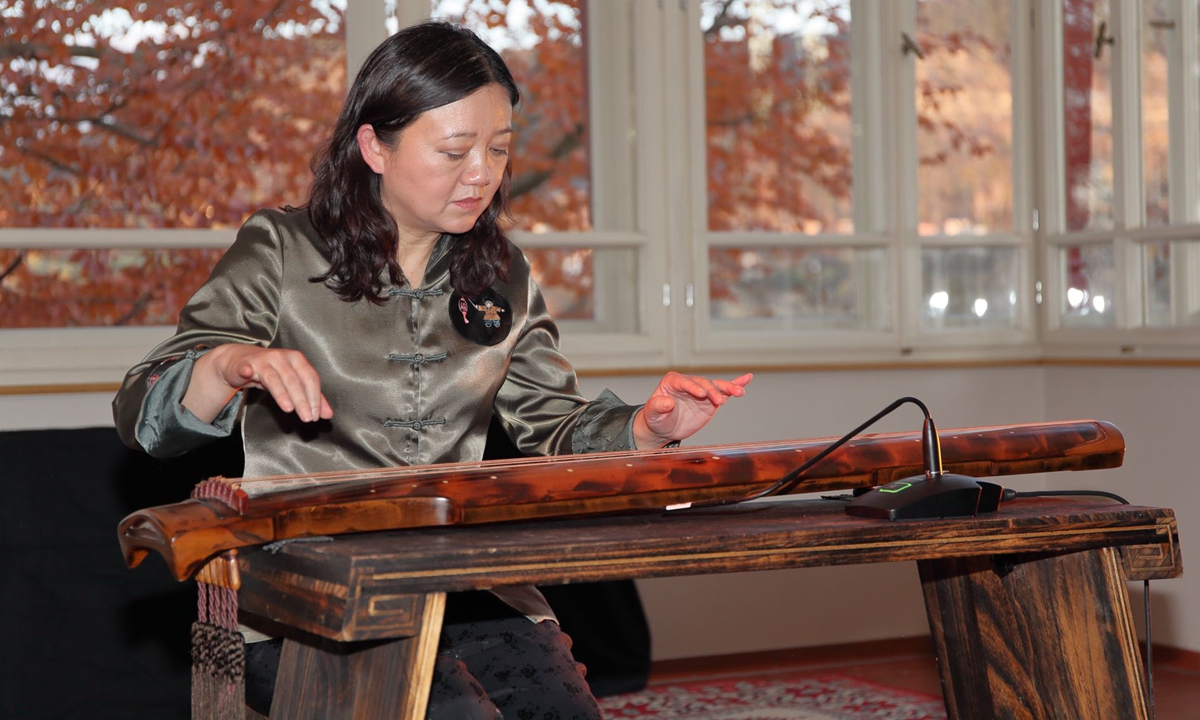
Li Pengpeng plays the guqin. Photo: Courtesy of Li Pengpeng
Gently flicking fingertips, a millennium-old antique musical instrument and tune that has been sought after by literati since ancient China intertwine with each other, captivating the attention of an honored guest.Chinese President Xi Jinping and French President Emmanuel Macron enjoyed a performance of the melody "High Mountain and Flowing Water" on April 7 at the Baiyun Hall of the Pine Garden in Guangzhou, South China's Guangdong Province. The performer, musician Li Pengpeng, told the Global Times that the experience was full of "joy, elegance and beauty."
Strong interest
Li recalled that after she was asked to perform, she was invited to go to collector He Zuoru's home to "wake up" the instrument that would be used for the performance - an antique guqin, a traditional stringed instrument that was made during the Tang Dynasty (618-907).
"Many people might have heard of 'decanting wine.' Likewise, 'decanting' a guqin requires the musician to play with flexible fingers on the strings to fully restore its original sound," she explained, adding that she had previously played this antique instrument in 2016 and so was familiar with its condition. She spent about three hours over two to three days to fully "wake up" the guqin.
Li said that as the two leaders entered the hall their attention was immediately captured by her performance and she is very pleased that Macron showed a strong interest in the instrument. She noted that she believes the melody touched the French leader as he listened to the complete version of "Flowing Water" very attentively.
She recalled that the environment and atmosphere were very quiet and elegant so she was very relaxed and able to concentrate while playing the tune. All in all, she was very satisfied with her performance.
'The instrument of sages'
The guqin that Li played is called Jiu Xiao Huan Pei (Jade Pendant of Highest Heaven). Crafted in 756, it has been handed down for centuries. The back of the guqin is engraved with the calligraphy by Su Shi, one of the greatest Chinese literati of the Song Dynasty (960-1279).
Before Li Pengpeng, her father Li Xiangting also played the Jiu Xiao Huan Pei. He spoke highly of the ancient relic and its beautiful sound.
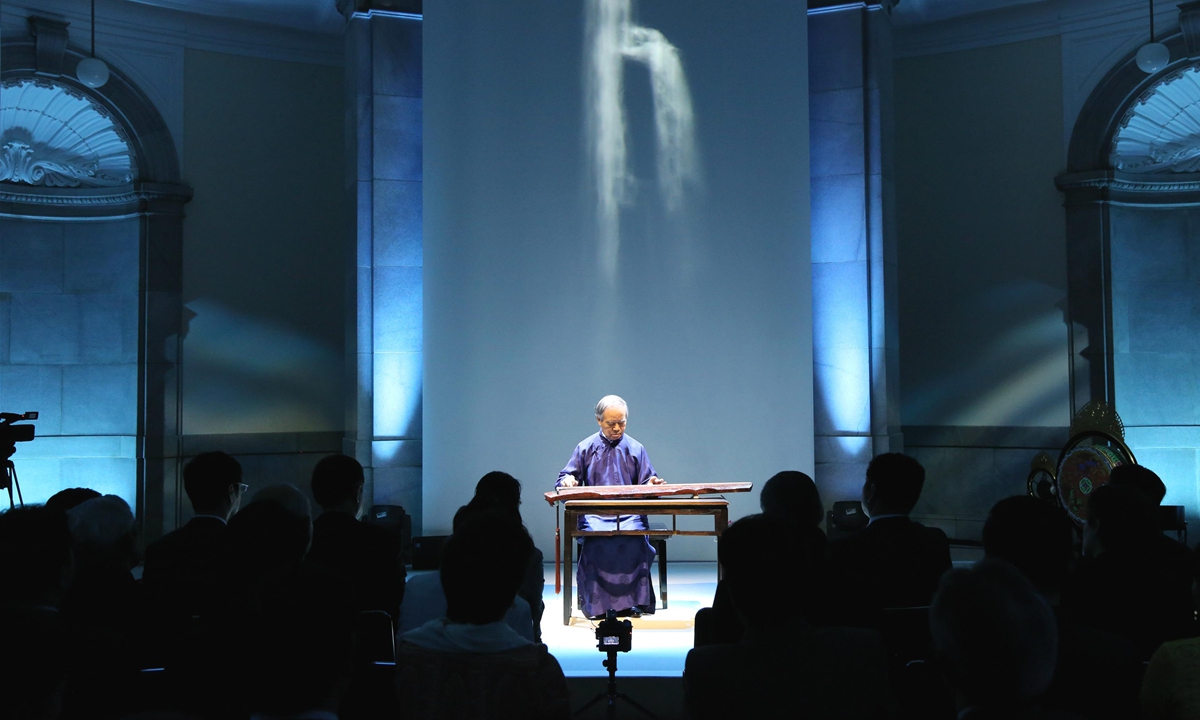
Li Xiangting plays the Jiu Xiao Huan Pei in 2019. Photo: VCG
According to Li Pengpeng, her father had played more than 10 of the nearly 20 Tang Dynasty guqin that still survive today. As for her, she has played guqin from the Song Dynasty and the Ming Dynasty (1368-1644). However, according to the expert, a good guqin cannot be judged by its age but its tone.Tian Qing, a venerable musicologist and a guqin expert, once told the Global Times in a previous interview that the instrument has the honored title of "the instrument of sages" as Confucius often played the guqin while reflecting on life.
People around the world have invented a lot of instruments with various characteristics, but there are no other instruments like the guqin that has such profound cultural connotations. It boasts a long history of more than 3,000 years and has a unique music score system that has been in use since the 7th century.
Tian pointed out that as a musical instrument, the guqin's basic structure is the embodiment of classical Chinese philosophy and ancient Chinese people's view of Nature and Heaven and Earth. The guqin is composed of two wooden boards: The top is the front panel, which is curved, and the bottom is the rear panel, which is flat, symbolizing the ancient concept that "Heaven is round and Earth is square."
Li Pengpeng echoed that the guqin is one of the few instruments that were purely created by the Han people and not influenced by other cultures. Its rich sound that is described as "rigid, soft, vital and real" is also one major feature.
A better inheritance
Li Pengpeng mentioned that the best way to preserve a guqin is to find experienced players who can keep playing it, while those instruments that are damaged and cannot be restored can be displayed in museums.
According to reports, China now boasts four Jiu Xiao Huan Pei in total. Besides the one in He's private collection, the other three are collected in three separate Chinese museums.
Having the honor to play such an ancient antique begs the question: Do the players feel like they are "talking to the ancients" while performing? Li Pengpeng smiled and shook her head in denial, saying it was too "magical" to describe. She pointed out that in order to achieve the best state of "selflessness," a state in which one's own ego no longer plays a role in a performance - there is only the instrument and the music - requires plenty of practice and experience.
Li Pengpeng began to practice the guqin with her father when she was 10. In this way, the sound and melody of the guqin became deeply rooted in her mind even before she began playing. After graduating from the Central Conservatory of Music, Li Pengpeng began a global tour to promote international cultural exchanges through the guqin.
The musician said she was very pleased to see the intangible cultural heritage has been conserved profoundly well, and that more young Chinese are showing an interest in traditional Chinese music and learning to play the traditional instrument.

